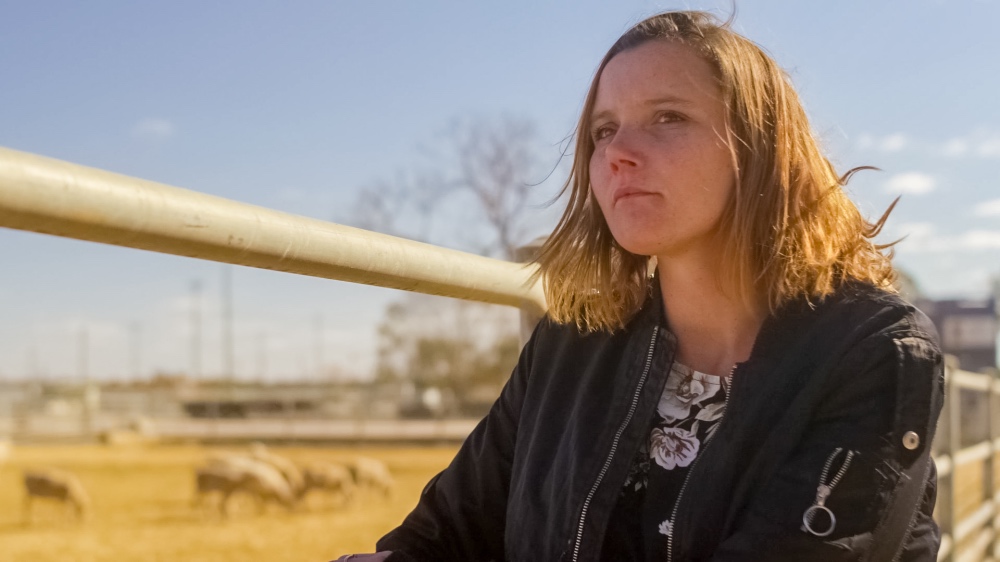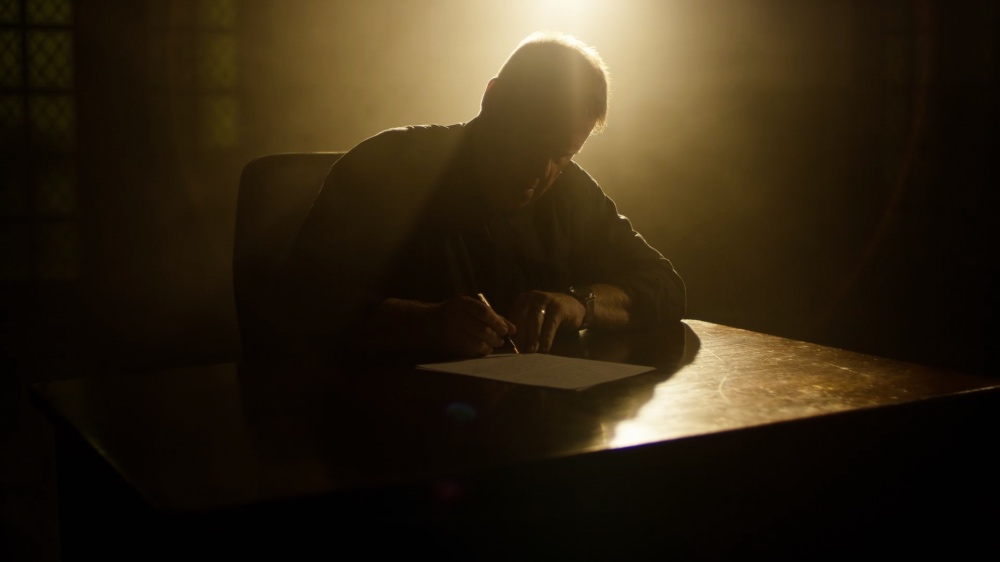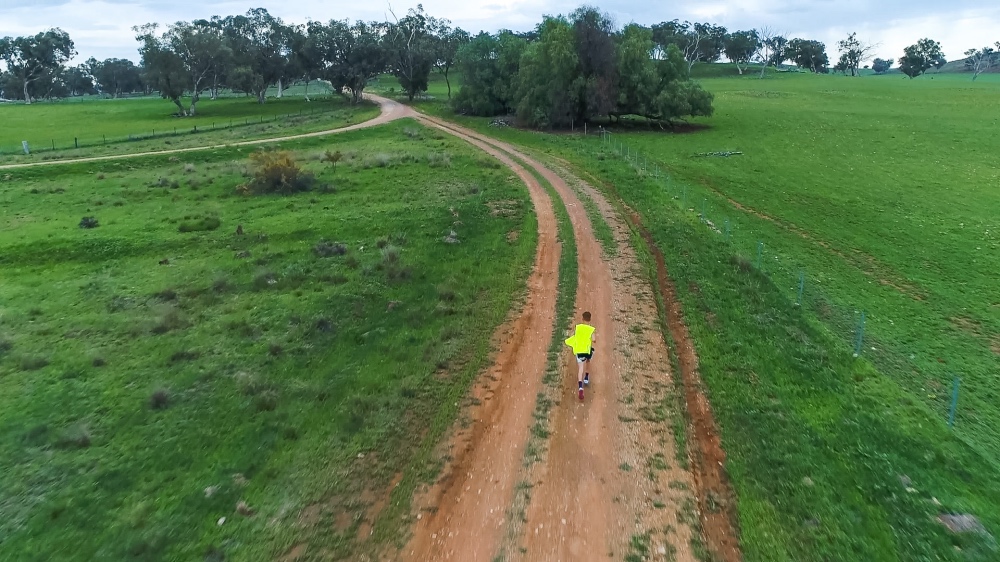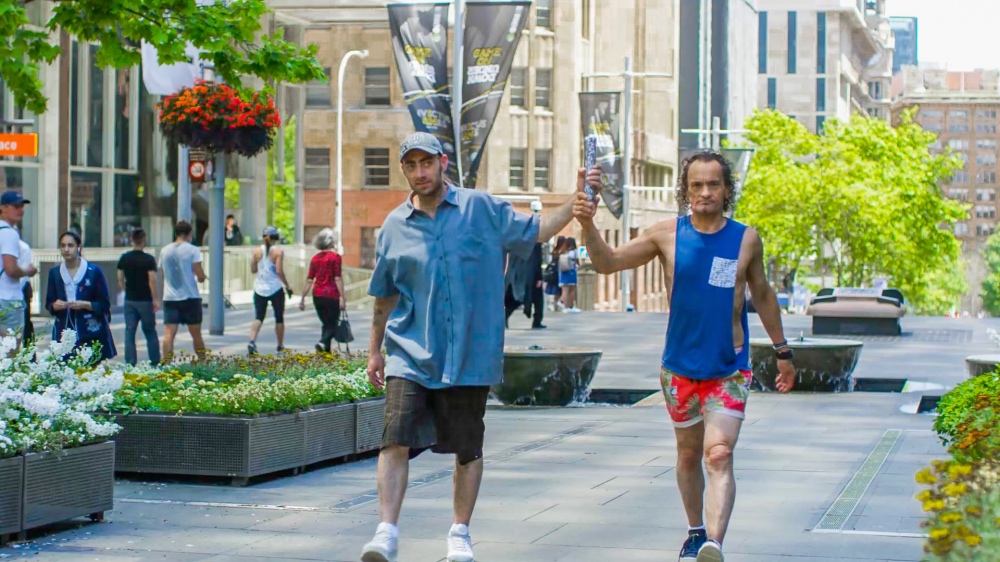
CHRISTOPHER GILBERT reports on how a Uniting Church-funded documentary aims to change the way Australia approaches the issue of drug use…
Shantelle Irwin, a single mum from a Dubbo sheep property wants to be clean of drugs. But getting treatment for her addiction is a near impossibility.
The same is true for many thousands of rural dwellers in the Australian state of New South Wales where the only treatment centre is in Sydney – and it only has room for very few at a time. Irwin has taken the courageous step, while she waits for treatment, to participate in a feature documentary film – made by the Uniting Church in Australia – that exposes the problem and suggests a solution.
“We made the documentary to highlight the personal stories behind the lack of treatment services [especially for mothers with children] in rural and regional [areas],” says Kelley White of the church’s communication arm, Uniting. “By telling the stories it was also intended to de-stigmatise problematic drug use in NSW, as well as educate the public on the failure of current drug policy.”

Shantelle Irwin, from Dubbo, as she appears in the documentary film, Half a Million Steps. PICTURE: Supplied.
The film’s origins go back to 2015 when the church’s NSW and Australian Capital Territory synod passed a resolution to campaign for the decriminalisation of drugs in small quantities and to increase access to treatment, making the Uniting Church the first church in the world to pass such a resolution.
Following the resolution, the church began a ‘Fair Treatment’ campaign in which some 59 organisations – all of which have some investment in drug policy – are now partnering with the church.
“We made the documentary to highlight the personal stories behind the lack of treatment services [especially for mothers with children] in rural and regional [areas]. By telling the stories it was also intended to de-stigmatise problematic drug use in NSW, as well as educate the public on the failure of current drug policy.”
– Kelley White of Uniting, the Uniting Church’s communication arm.
The church also held an event called ‘The Long Walk to Treatment’ which saw, in October, 2018, 100 people take 500,000 steps in a walk from Dubbo to Sydney where they delivered a letter to the New South Wales Parliament asking for help.
That event also brought Richard Branson, founder of the Virgin companies, to Australia where he spoke in support of the campaign and, as is shown in the film’s introduction, sat down one-on-one with Shantelle and offered her encouragement for the walk.
The documentary Half a Million Steps allows the viewer to accompany the walkers on their journey and, according to its UK-based director Dominic Streeter, and Dr Marianne E Jauncey, who is the medical services director for the Uniting Church and is the film’s narrator, aims to shine a light of hope on what is a global crisis.

Shantelle Irwin, walking with a baton containing a letter to the New South Wales Parliament in a scene from the film. PICTURE: Supplied
A key aspect of the film’s approach focuses on how other countries have found a solution to the problem of drugs by treating drug addiction as a health issue, not a criminal issue. It posits that the crisis has been made worse in countries which have resisted 60 years of evidence that criminalising drug use is in fact provoking a growing epidemic of drug use.
It is the “active compassion” of the Uniting Church that attracted Streeter and Jauncey to the campaign. And both admit their surprise, as people who both described themselves as “secular” and not as people of faith, that it’s a church body that is leading the way in drug policy reform.
“They have that conviction [that] a harm reduction approach was the right thing to do and they did it when no one else was doing it,” says Streeter, speaking of the history of the Uniting Church in influencing drug policy.
The film tells of how many people in rural areas are dying while waiting what is sometimes years for treatment and how some can never get help at all because their region is ruled out of a treatment option. It explains how in Australia drug use is not seen as a health issue priority which should be dealt with through treatment centres but instead how under current policy it’s a criminal matter involving the police, courts, and prisons – an attitude that the participants in the The Long Walk to Treatment hoped to change when they delivered a letter into the hands of state politicians asking for a rethink of drug policy.
It’s the stories of the walkers from Dubbo and regions along the route which give the film its power. With an artistic nod to the 16th century reformer Martin Luther, we see Rev Simon Hansford, moderator of the NSW and ACT Synod of the Uniting Church, hand-write the letter to the parliament and then insert it into a baton. Then it’s Adam Wiseman, a flying instructor from Dubbo and a rehabilitated “user”, who flies the baton to Dubbo to begin the walk.

Rev Simon Hansford, moderator of the NSW and ACT Synod of the Uniting Church, hand-writing the letter to the New South Wales Parliament in a scene from the film. PICTURE: Supplied.
“The court system’s readily accessible when you do something wrong, but when you’re ready to do something right, where’s that avenue?” says Wiseman in the film. “The passion for flying that I’ve had helped save me.”
Shantelle Irwin leads off the walk with baton in hand as she tells her own story of drug use, why she made that mistake, and her desire to get clean. We are then introduced to character after character along the road, who with dignity, yet through revealing camera work, get to tell their stories.
“She needs rehab, you know. End of story. It shatters you, this sort of thing, you know, but there’s not much you can do.”
– Johnny Hill, Jr, speaking about his mother, Candy Trudget, in the film.
There’s a rugby league NRL recruit from Dubbo and an Indigenous farm worker – both now clean – who have joined in reaching out to rural users who have no hope of rehabilitation. There’s a fireside scene along the road featuring a late teen woman and a young man with the pilot Wiseman, where they discuss how, for some, the easiest option without treatment, can be suicide by overdose.
In another scene, a mother of two, clean for a number of years, expresses her delight in being a “real mum” to her children, after which a doctor speaks in a street interview on drug addiction. Especially poignant is a scene in a gym featuring teenage Australian boxing champ, Johnny Hill, Jr, whose mother, Candy Trudget, has been an addict most of his life. Between images of Johnny training we see her sitting alongside him, contributing to the story. Trudget is still using and waiting for treatment with a long line ahead of her in Sydney.
“She needs rehab, you know. End of story,” Hill says through tears. “It shatters you, this sort of thing, you know, but there’s not much you can do.” He goes on to say how easy it is in Dubbo for his mum to get drugs. “Every second house.”
Trudget, meanwhile, says she wishes she might “give” to this son she’s so proud of, instead of always taking.

Johnny Hill, Jr, takes part in the walk in a scene from the film. PICTURE: Supplied.
The candour of those seeking help is attractive despite the physical marks of their addiction. It’s especially sharp when we meet Josh and Taz from Sydney (Josh joined the walk in the Blue Mountains). But theirs is just one of the many stories along the 500,000 steps in a narrative that compels attention, some laughter, and some tears throughout the full 87 minutes.
The director, Dominic Streeter, saves the strongest expert testimonies for the last few kilometres of the walk in Sydney. There, Nicholas Cowdery, a former NSW Director of Public Prosecutions, and Mick Palmer, a former commissioner of the Australian Federal Police, both publicly express their abhorrence for the continuation of the longstanding policy of criminalisation. Instead, they strongly advocate for making drug use and addiction a health issue where treatment is provided as for any other health issue that is an epidemic.
The film ends with a bookend. Just as the letter in its baton emerged from a stone arched doorway of a church at the beginning, it disappears through a similar arched doorway – this time at Parliament House in Sydney. While the four politicians who received it from the walkers did so with smiles and handshakes, the question of decriminalisation and treatment availability raised by the Long Walk to Treatment in late 2018, and now again in Half a Million Steps, still remains to be answered.
Reflecting on the walk and the Fair Treatment campaign in the film, the Uniting Church moderator Hansford is candid.
“It didn’t feel like we’d moved our church into a brand new space. It just felt like, of course we should do this!” he says. “Treatment as opposed to punishment is a Gospel imperative. But looking back at that and looking at how the community is responding to us, I realise how momentous it actually was.”

Rebekah Heils carries the baton along a beach in Sydney in a scene from the film. The film states that she is only one of the few people fortunate enough to be in treatment in NSW. PICTURE: Supplied.
The Uniting Church in Australia has a history of facing down populist public policy on drugs which goes back to 2001 when it opened the first safe drug injecting site in the English-speaking world. Eighteen years later, the injection centre has supervised more than a million injections with no overdose deaths and reduced ambulance call out rates by over 80 per cent as well as contributing significantly to stopping the spread of HIV. Now there are more than 100 such centres around the world.
“I saw a situation that I felt needed highlighting and I felt like that for a long time with drug policy. I’ve looked at the global evidence and I’ve seen there isn’t a direct correlation between evidence and policy. It’s a story that had to be told.”
– Dominic Streeter, director of Half a Million Steps.
In Half a Million Steps, Jauncey’s grasp of the research and the personal lives of those criminalised under current policy mixes her clear compassion with intelligent analysis of a problem that has troubled societies world wide.
“Shantelle’s only crime is her use of drugs,” she says. “As a society our view is that Shantelle is a criminal. That’s not my view.”
Jauncey points to the astonishing success of Portugal, whose parliament, in bi-partisan accord, decriminalised drug use in favour of regarding it as a health issue 17 years ago. Now Portugal experiences 20 times less overdose deaths per capita than Australia.
According to Streeter, the latest research says that five Australians die from drug overdoses every day, an increase from three people daily at the time of The Long Walk to Treatment.

Josh and Taz carrying the baton in Sydney in the final approach to Parliament in a scene from the film. PICTURE: Supplied.
For the film’s director, the opportunity to make the documentary came from earlier work he had done for Uniting on the suffering of refugees including the 2000 children then in Australian camps both onshore and offshore. When a representative of Uniting called him in London with an idea for a documentary on drug policy reform in 2018, there was no question in his mind about his participation.
“I have a strong sense of what’s fair and what doesn’t make sense in the world,” he says.
According to Uniting’s Kelley White, it was Streeter who had the vision for what the documentary could do and carried the church’s leadership with him through the project.
“I saw a situation that I felt needed highlighting and I felt like that for a long time with drug policy,” he says. “I’ve looked at the global evidence and I’ve seen there isn’t a direct correlation between evidence and policy. It’s a story that had to be told.”
Streeter’s latest documentary, almost ready for release, deals with the opioid epidemic in North America through the story of what’s happening in Vancouver, Canada.
To see ‘Half a Million Steps’ or to facilitate a showing, go to fairtreatment.org to register your interest.





